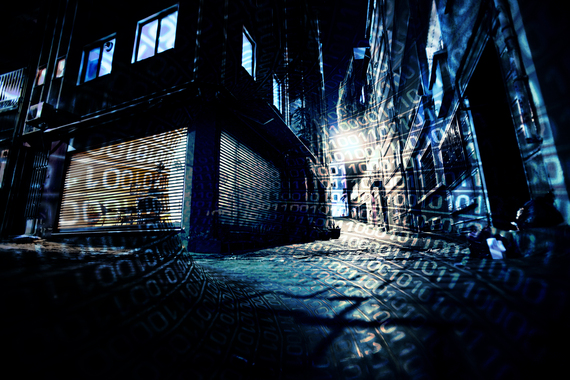
I have been driven around town in Uber cars ordered on my smartphone.
I have managed to navigate the crowded streets of New York using Waze on the same smartphone.
I have ordered holiday gifts from both my PC and tablet.
I have watched the movie The Princess Bride, with my grandchildren, on a large-screen TV ordered in real time through Amazon.
I continue to catch up with Sons of Anarchy on my iPad purchased a season at a time, as I run on the treadmill.
I read The New York Times every morning in a digital format and the New York Post every night while I follow Financial Times updates throughout the day.
And, as I write this I am listening to Classic Vinyl on Sirius, streaming through my smart TV.
Needless to say there are countless other interactions that I have neglected to mention -- that have become part of my daily routine as they have become for so many -- all of us creating our own usage rituals based on our unique needs and desires.
Digital is everything and everywhere making our lives better and more fulfilling... giving us more time to enjoy; connecting us; educating us; entertaining us; creating new opportunities for all.
BUT NOT EVERYTHING IS DIGITAL.
Ebola is still raging in parts of Africa; racial tensions are rocking the United States; the Mideast is in turmoil; Israel and Palestine continue their conflict; and digital -- the promise of our age -- has done nothing and contributed even less to solving these problems (being a little provocative here, so don't knee-jerk little proofs to the contrary), primarily because we pursue monetization of shopping and social.
Yet all of this conflict,all of these issues, every one of these problems are connected and have a common core - a thought pointed out to me by my friend S.S., a member of his country's UN Delegation. A core, by the way, that I firmly believe is an outcome of our digital society.
Says my friend: "What connects these cases is the fact that many people tend to espouse firm yet simplistic opinions on those matters, without even attempting to understand the issues and their complexities."
We use all of our devices, and in between using all of the life-/game-changing apps we can, we inhale small doses of information -- often unchecked; not vetted; from sources removed far from the center source by the very technology that brings it to us; typically reading the posts that support our preconceived notions and beliefs; rarely delving beyond the headlines or sound bites.
We forgo the true, original promise of the WWW -- which was to share information and knowledge to make the world better -- while we grab and store information to sell more.
We have mimicked, online, that worst outcome of offline ignorance, as chronicled by the legendary Mel Brooks in Young Frankenstein: "A riot is an ugly thing..."
The point being that any aggregation of ill-informed mob thinking -- be it online or off, and online does lead to off -- is an ugly thing, and we see the results of such behavior day in and day out all over the world. Too little of the possibilities that could be ours if well-informed "mobs" would form and "riot" to human benefit.
So what can we do? Change the world...a post at a time....
What I find fascinating is that, like everything else in our digital world (as I have written before), we need to look back to truly understand it -- and in this case really far back. Listen:
"Distringit librorum multitudo (the abundance of books is distraction)." - Seneca
The abundance of input is distraction -- GIGO: garbage in, garbage out.
It is up to us to remove the distractions and thoughtfully attack the problems of society and, no less important, our own personal relationships -- in fact maybe we should start small and up close.
We need to take the time to understand before we act -- hold off on tweeting that tweet or sharing that post until we are sure of our facts. Think about the implications of our clicking and subsequent shouting.
Time to change the world... a well-thought-out thought at a time.
What do you think?

